 Despite a firm commitment with the Justice Department not to be involved in the day-to-day management of Hulu as a condition of approving Comcast’s merger with NBC/Universal, new revelations suggest Comcast not only promoted the online video service to its partners as a nationwide streaming platform for the cable industry, it also convinced them not to sell the service to a Comcast competitor.
Despite a firm commitment with the Justice Department not to be involved in the day-to-day management of Hulu as a condition of approving Comcast’s merger with NBC/Universal, new revelations suggest Comcast not only promoted the online video service to its partners as a nationwide streaming platform for the cable industry, it also convinced them not to sell the service to a Comcast competitor.
Two years ago, at the 2013 Allen & Co., conference held in the resort community of Sun Valley, Idaho, executives from Walt Disney/ABC, 21st Century Fox, and Comcast privately met to discuss the future of Hulu, the online video service. Hulu’s chief executive, Jason Kilar, had already made it clear he was preparing to leave the venture, possibly foreseeing a likely sale because of ongoing differences between two of Hulu’s three owners over the future direction of the service.
Rupert Murdoch’s FOX wanted Hulu to emphasize Hulu+, its subscription option. Disney/ABC believed Hulu worked best as a free, ad-supported service. Comcast was supposed to stay out of it, required by the Justice Department to be a perpetual silent partner after the cable company inherited a 32% stake in Hulu through its merger with NBC/Universal in 2011.
But a Wall Street Journal report late Tuesday suggested Comcast had far more involvement in critical Hulu business decisions than the Justice Department might have tolerated had it known. Earlier reports over the weekend suggested regulators were focusing on Comcast’s involvement in Hulu, concerned Comcast may have ignored a consent decree and interfered with the sale of Hulu to protect itself from increased competition.
At the time Comcast acquired NBC/Universal, the Justice Department was concerned the cable company would inherit NBC’s one-third interest in Hulu, a potential online video competitor that could eventually fuel cord-cutting. Comcast agreed to “relinquish any veto right or other right to influence, control, or participate in the governance or management of Hulu.” It also agreed to license Comcast/NBC-owned content to Comcast’s competitors on fair terms.
Despite Comcast’s commitment, people familiar with the matter told the Journal Comcast “felt hamstrung” by the conditions it agreed to in the consent decree. Although Comcast spokeswoman Sena Fitzmaurice insisted “Comcast has no role in making, evaluating or reconsidering any management decisions at Hulu,” Comcast executives in attendance at the Sun Valley meetup suggested Hulu was an important part of the cable industry’s future. The “silent partner” allegedly told Hulu’s fellow owners if they didn’t sell the venture, Comcast would make Hulu the nationwide streaming video platform for the industry’s “TV Everywhere” project, turning it into a potential major rival of Netflix.
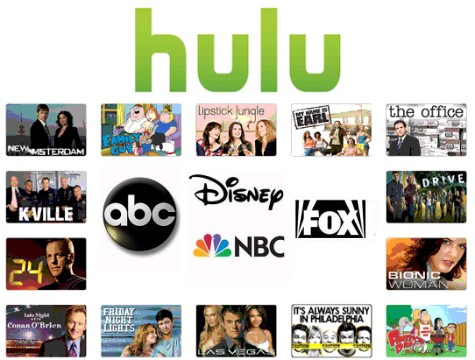
Comcast acquired a 32% ownership interest in Hulu after buying NBC/Universal.
According to sources who had knowledge of the matter, Comcast’s proposal, which would enlarge Hulu significantly almost overnight, influenced Disney and Fox to cancel the sale by the end of the week-long conference. At that point, two of the biggest bidders to acquire Hulu were Comcast rivals DirecTV and AT&T, both seeking to develop online video platforms that could compete with Comcast.
As news spread the Hulu sale was off, a piece in GigaOm made it clear Comcast came away the biggest winner, keeping a potential competing online cable TV video platform at bay:
Buying Hulu would have been more than just a TV Everywhere play for AT&T and DirecTV. It could have been the first step towards an online-based pay-TV subscription, with a solid consumer base, name recognition and proven technology.
Now none of this is going to happen — and Comcast couldn’t be happier about that.
Ultimately, Comcast wasn’t much better fulfilling promises to its Hulu partners than it has managed for its customers. Despite promising to market Hulu to millions of Comcast cable subscribers and integrating the service into Comcast’s own systems, discussions surrounding a formal agreement between the two went nowhere, bogged down by a deal-killing Comcast demand that any viewer accessing Hulu be redirected through Comcast’s own video player and platform, which conveniently provided the cable company with Hulu customer data and gave free exposure to Comcast’s brand. That would make pitching Hulu as an alternative to Comcast next to impossible.
After the threat of a sale was a distant memory, Comcast seemed to lose interest in Hulu, refocusing on its expensive X1 set-top box and XFINITY-branded streaming apps.
To this day, Comcast’s X1 still does not offer subscribers a Hulu app.


 Subscribe
Subscribe If you are a long time Optimum customer, the CEO, management, and shareholders of Cablevision would like to thank you for driving average monthly cable revenue per customer 4.8% higher from a year ago to $155.34 a month.
If you are a long time Optimum customer, the CEO, management, and shareholders of Cablevision would like to thank you for driving average monthly cable revenue per customer 4.8% higher from a year ago to $155.34 a month. “The main drivers of our increased revenue per customer came from a combination of rate increases, but also lower proportion of subscribers on promotion,” said Brian G. Sweeney, chief financial officer. “We had a number of fixed rate increases January 1 of this year related to cable box fees, an increase in our sports and broadcast TV surcharge, as well as the pass-through of PEG fees to certain customers.”
“The main drivers of our increased revenue per customer came from a combination of rate increases, but also lower proportion of subscribers on promotion,” said Brian G. Sweeney, chief financial officer. “We had a number of fixed rate increases January 1 of this year related to cable box fees, an increase in our sports and broadcast TV surcharge, as well as the pass-through of PEG fees to certain customers.”
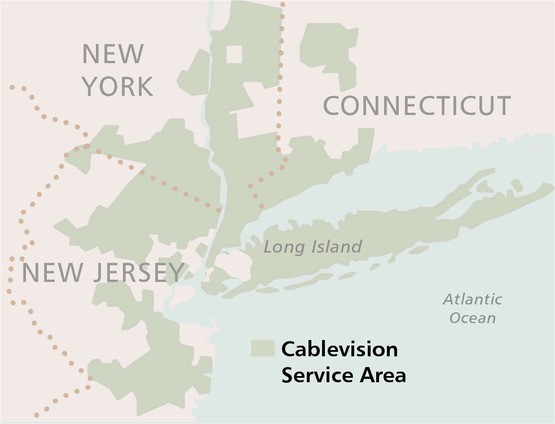 To further combat promotion-bouncing, Cablevision is embracing its broadband product line and marketing new cord-cutting packages to customers that offer reduced-size cable television packages and free over the air antennas for local stations. The cable company also recently announced it would offer cable customers Hulu subscriptions. Jim Dolan, Cablevision CEO, believes broadband is where the money is and customers are willing to pay higher prices to get Internet access even when video package pricing has its limits.
To further combat promotion-bouncing, Cablevision is embracing its broadband product line and marketing new cord-cutting packages to customers that offer reduced-size cable television packages and free over the air antennas for local stations. The cable company also recently announced it would offer cable customers Hulu subscriptions. Jim Dolan, Cablevision CEO, believes broadband is where the money is and customers are willing to pay higher prices to get Internet access even when video package pricing has its limits.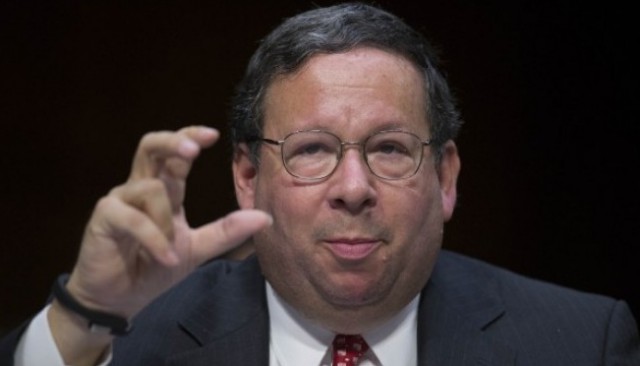
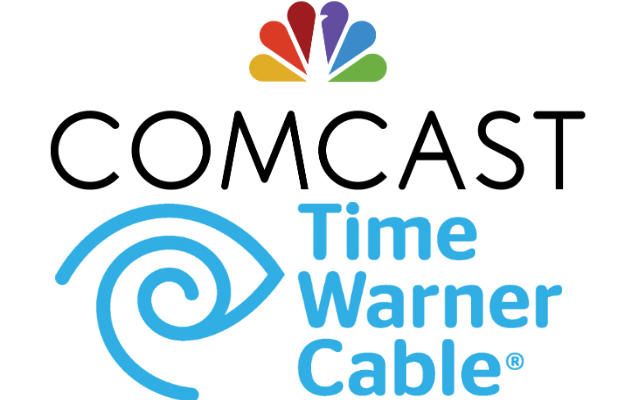 Comcast’s claims of “deal benefits” for consumers was perceived to be tissue-thin by legislators like Rep. Tony Cárdenas (D-Calif.), whose district would have seen Time Warner and Charter customers absorbed into the Comcast Dominion.
Comcast’s claims of “deal benefits” for consumers was perceived to be tissue-thin by legislators like Rep. Tony Cárdenas (D-Calif.), whose district would have seen Time Warner and Charter customers absorbed into the Comcast Dominion. “They talked a lot about the benefits, and how much they were going to invest in Time Warner Cable and improve the service it provided,” said one senior Senate staff aide, who spoke on the condition of anonymity because he was not authorized to speak publicly. “But every time you talked about industry consolidation and the incentive they would have to leverage their market power to hurt competition, they gave us unsatisfactory answers.”
“They talked a lot about the benefits, and how much they were going to invest in Time Warner Cable and improve the service it provided,” said one senior Senate staff aide, who spoke on the condition of anonymity because he was not authorized to speak publicly. “But every time you talked about industry consolidation and the incentive they would have to leverage their market power to hurt competition, they gave us unsatisfactory answers.” The largest telecom companies in the United States, their trade associations, and Ajit Pai, one of two Republican commissioners serving at the Federal Communications Commission routinely claim America has the best broadband in the world. From the perspective of providers running to their respective banks to deposit your monthly payment, they might be right. But on virtually every other metric, the United States has some of the most expensive broadband in the world at speeds that would be a gouging embarrassment in other countries.
The largest telecom companies in the United States, their trade associations, and Ajit Pai, one of two Republican commissioners serving at the Federal Communications Commission routinely claim America has the best broadband in the world. From the perspective of providers running to their respective banks to deposit your monthly payment, they might be right. But on virtually every other metric, the United States has some of the most expensive broadband in the world at speeds that would be a gouging embarrassment in other countries.
 The Slovak government insisted that telecommunications networks in the country be competitive and it maintains oversight to make sure monopolies do not develop. It rejected claims that total deregulation and competition alone would spur investment. Slovakia welcomes outside investment, but also makes certain monopoly pricing power cannot develop. As a result, most residents of Bratislava have a choice of up to eight different broadband providers — a mix of cable, telephone, wireless, and satellite providers that all fiercely compete in the consumer and business markets.
The Slovak government insisted that telecommunications networks in the country be competitive and it maintains oversight to make sure monopolies do not develop. It rejected claims that total deregulation and competition alone would spur investment. Slovakia welcomes outside investment, but also makes certain monopoly pricing power cannot develop. As a result, most residents of Bratislava have a choice of up to eight different broadband providers — a mix of cable, telephone, wireless, and satellite providers that all fiercely compete in the consumer and business markets. Prices are considerably lower than what American providers charge, although speeds remain somewhat lower than broadband services in Bulgaria, Romania, and the Baltic States. At one address on Kláštorská, a street of modest single family homes (some in disrepair), these companies were ready to install service:
Prices are considerably lower than what American providers charge, although speeds remain somewhat lower than broadband services in Bulgaria, Romania, and the Baltic States. At one address on Kláštorská, a street of modest single family homes (some in disrepair), these companies were ready to install service:
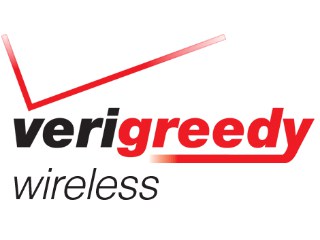 Verizon believes it has a premium product and expects to be paid for it. Like a Neiman Marcus of the wireless industry, customers can expect a superior level of service, if they can afford to pay for it.
Verizon believes it has a premium product and expects to be paid for it. Like a Neiman Marcus of the wireless industry, customers can expect a superior level of service, if they can afford to pay for it.